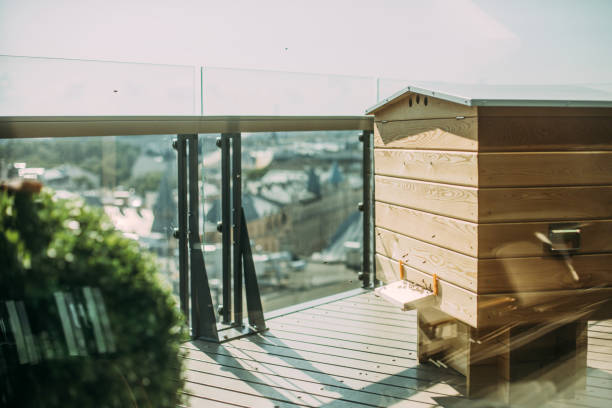The Rising Popularity and Benefits of Urban Beekeeping
In the midst of bustling city life, a surprising trend has taken flight: urban beekeeping. This modern twist on an ancient practice is helping to sustain bee populations, boost local economies, and even improve mental health. Here's a deep dive into the hive of this fascinating phenomenon.

A Brief History of Urban Beekeeping
The practice of beekeeping, or apiculture, dates back thousands of years, with evidence from ancient Egypt depicting humans collecting honey from wild colonies. However, urban beekeeping is a relatively recent development. It started becoming popular in the late 20th century, with cities like New York and London lifting bans on keeping bees within city limits. This change was prompted by concerns about declining bee populations and the important role bees play in pollination.
The Current Scenario: Urban Beekeeping in the Spotlight
Today, urban beekeeping is not just a hobby; it’s an essential part of urban agriculture, contributing significantly to biodiversity in cities. Rooftops, balconies, and even empty lots are being transformed into apiaries. In New York City alone, there are now over 500 registered beekeepers, a sharp rise from just a handful a decade ago.
The Impact of Urban Beekeeping on the Economy
With the rise of urban beekeeping, there’s also been an influx of locally produced honey in urban markets. This has provided a new source of income for many residents and has stimulated local economies. A report from the Federation of American Beekeepers estimates that urban beekeeping could contribute up to $1.2 billion to the U.S economy annually.
The Science of Urban Beekeeping: Why it Matters
Urban beekeeping plays a crucial role in supporting bee populations, which have been declining due to habitat loss, pesticides, and disease. Bees are essential for pollination, and without them, our food system would be severely impacted. Additionally, studies have shown that urban bees are often healthier and produce more honey than their rural counterparts, thanks to a wider variety of plants in cities.
Urban Beekeeping and Mental Health: An Unexpected Connection
In addition to its ecological and economic benefits, urban beekeeping has also been linked to improved mental health. The practice requires patience and mindfulness, qualities often associated with stress reduction and mental clarity. Some mental health organizations are even using beekeeping as a form of therapy, citing its calming effects and the sense of purpose it provides.
In conclusion, urban beekeeping is more than just a trend; it’s a sustainable practice with far-reaching benefits. It not only helps preserve our ecosystems and stimulate local economies but also promotes mental wellbeing. As urban dwellers continue to seek connections with nature, the buzz around urban beekeeping is set to grow even louder.





